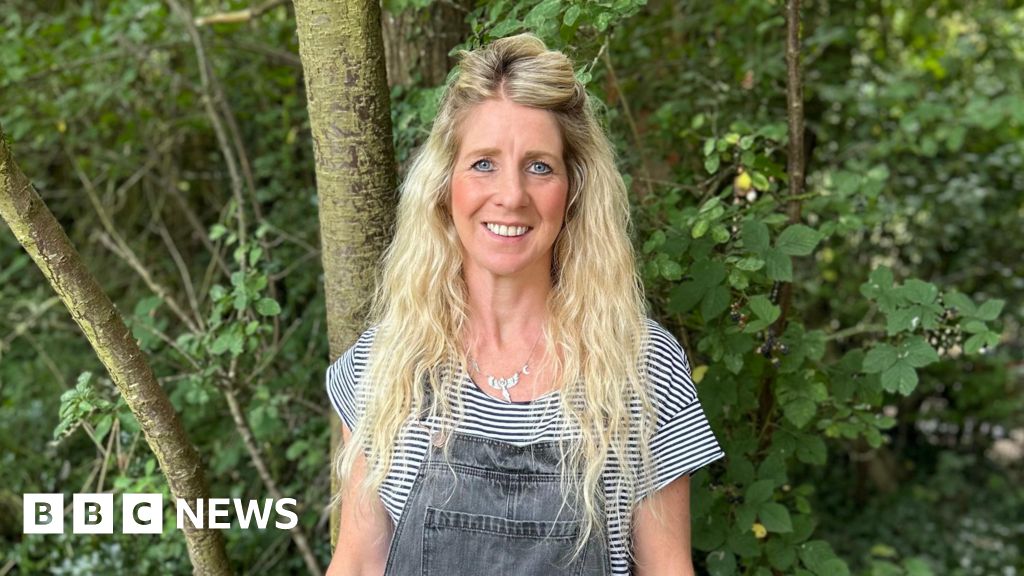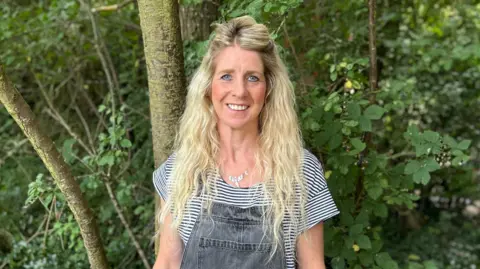 Anna Champneys
Anna ChampneysThousands of students in England, Wales and Northern Ireland will be getting their exam results on Thursday. It can be a stressful time, but one university lecturer tells BBC News it’s never too late to go back into education, no matter what results you get.
Anna Champneys admits there was “no grand plan” when she left school at 16 without any GCSEs.
She left before sitting any exams, after years of struggling with the “regimented” classroom structure and missing several deadlines.
But, fast-forward 20 years, Anna now has a PhD and teaches more than 100 university students.
“If I could speak to young Anna, I would just be reassuring and say, ‘don’t worry’,” she says.
Anna was in the minority when she studied later in life but the number of older students enrolling at universities across the UK has risen in recent years.
According to the latest figures from the Higher Education Statistics Agency (HESA), those aged 25 to 29 made up 14% of the student population in 2022/23, up from 11% four years previously.
There was a similar increase for students aged 30 and over – from 20% in 2018/19 to 23% in 2022/23.
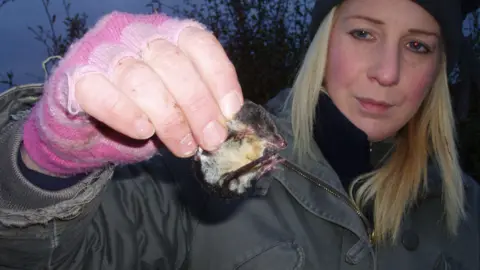 Anna Champneys
Anna ChampneysAnna says her job as course leader in wildlife conservation at Nottingham Trent University has given her some “amazing” experiences.
She leads field trips to watch deer rutting in the autumn and tracks seals on the Lincolnshire coast with groups of students.
But it was not a straightforward route into lecturing for Anna, 45, who follows the mantra that “there are no rules” if you want to go back into education.
“I spent all my years at school hating it and couldn’t wait to get away from education, but now I’ve spent half my life in academia,” she says.
“It’s ridiculous really, but it wasn’t the learning that I didn’t like, it was the system of school.
“I love learning. I still do.”
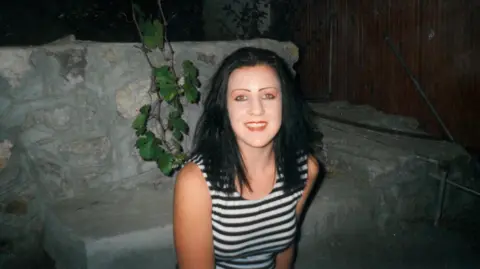 Anna Champneys
Anna ChampneysAfter leaving school at 16 with no qualifications, Anna says she spent the next two years doing all manner of jobs “just to earn some money”.
She worked as a library assistant, a waitress in a roadside cafe and a cleaner in a pub.
“I was just so glad to be out of school,” she says.
Anna found out she was pregnant soon after turning 18. After becoming a mum, she says she began thinking about how she could get back into education without having to return to the traditional classroom setting.
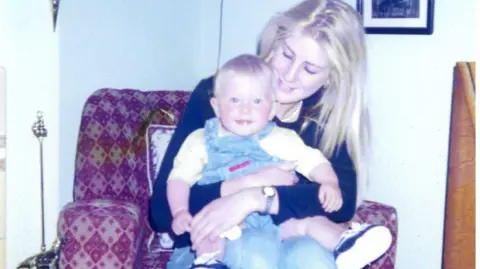 Anna Champneys
Anna ChampneysWhen she was 20, Anna passed her GCSE exams in English and maths.
She then enrolled on an Access to Higher Education course and “really enjoyed” the more hands-on learning that college offered compared with school.
It ignited a spark in Anna and she began an undergraduate degree in wildlife conservation at the same time her daughter started primary school.
She says the passion she felt in the labs and lecture halls at university were a world away from the “authoritarian” nature of school.
“It’s about doing what you enjoy and if it’s something you enjoy, you’ll do well.”
Anna’s education did not end there.
She spent the next five years studying for a PhD and finally graduated in 2012, almost 20 years after leaving school with no qualifications at all.
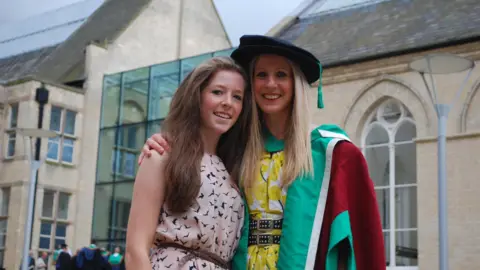 Anna Champneys
Anna ChampneysSince then, she has become a senior lecturer and recently won the Vice-Chancellor’s Teaching Excellence Award.
Anna’s unusual route into education meant she could pass on advice to her daughter when she sat her GCSEs 10 years ago.
“I didn’t know what I wanted to do [after school] either,” says 26-year-old Star, speaking alongside her mum from the family home in Leicestershire.
“But you [Anna] said that I don’t need to worry about that – and I didn’t go to university after.”
“And that’s fine because university is not for everybody,” says Anna.
She still remembers the “disappointment”, says Anna, that she felt walking out of school without any qualifications but says whatever the outcome for students getting their results this summer, there is no need to worry.
“It’s not the end of the world if you have not done as well as you would have liked.”
Anna knows first-hand how some of the best students are those who start learning again much later in life.
“There are no rules to say that you have to do everything in those traditional education years,” she says.
“I’ve had a student on my course who was 65 years old and completed the degree.
“It really is never too late.”
Adult learning: How to get back into education
Anyone who does not have a GCSE grade four or higher in maths or English can resit exams for free.
You can study for GCSEs, Functional Skills and other relevant qualifications from entry level to level two.
Contact your local authority or a further education college for more information.
For other subjects, it depends where you live.
In some parts of the country, older learners can sit GCSE exams for free if they earn less than £25,000 or are unemployed.
However, if you live in a region governed by a Mayoral Combined Authority (MCA), such as London or Greater Manchester, funding options vary.
The same funding restrictions apply to A-levels.
Visit your local MCA website for more information.
Most university courses require applicants to have some qualifications, such as GCSE maths and English, but entry requirements vary for each course.
Contact individual universities or check the Ucas website to find out more.
